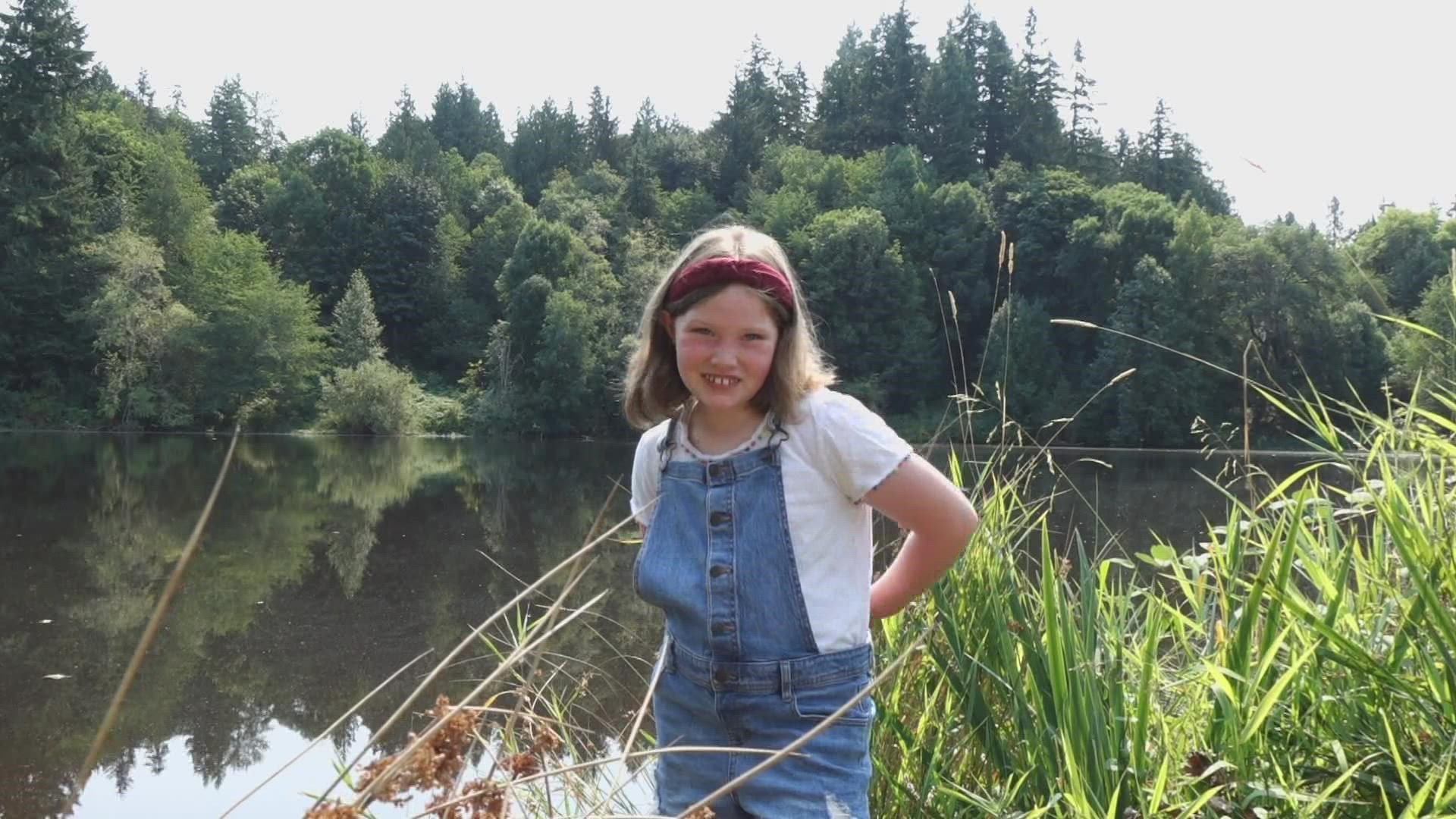DUVALL, Wash. — Eight-year-old Maggie Carosino is already a proven member of the scientific community. The soon-to-be third grader is bashful with her words but passionate about her love of nature.
Maggie spent last year homeschooling during the pandemic and her science class of choice was botany. Her enthusiasm for plants paid off for a local lake and the countless animals that it serves.
Her mother Reagan says she took Maggie for an educational visit to Lake Rasmussen in Duvall last fall when the pint-sized scientist noticed an unusual plant in the water.
King County officials say they were amazed to receive an email alerting them to the potential invasive plant. Noxious weed experts confirmed that it was a highly problematic invader known as "Egeria."
Sasha Shaw, with King County's Noxious Weed Program, said that Egeria is “a super invasive aquatic plant that’s never been found in the Snoqualmie watershed. Lake Rasmussen feeds into Cherry Creek and eventually dumps into Snoqualmie river.”
Egeria is an issue because if left unchecked it will spread to a point where it chokes out the light and kills other plant life and reduces oxygen for fish, according to Shaw. The Snoqualmie watershed is the largest in King County and home to some of the largest wild salmon runs remaining.
Maggie’s unfortunate discovery was fortunate in its timing as the county worked quickly to assess the lake and found no traces of Egeria having spread outside of the lake to this point.
“Her love of plants is what got Maggie to the lake but the fact that she felt some sort of civic responsibility to notice the plant and say ‘hey mom, we gotta tell somebody!’ is just amazing," said Shaw.
The county is currently treating the plants with a non-toxic chemical that will hopefully wipe out the Egeria in its place.
The teachable moment comes courtesy of the young student scientist Maggie who was quick to point out the bright orange fish swimming around the lake. Shaw confirmed the unfortunate reality is that the Egeria likely came from someone who dumped a fish tank into the lake.
The foot long gold fish swimming around are an obvious indicator and Shaw said, “Egeria is a plant that was harvested from South America and mass produced for the aquarium trade.”
This is a good opportunity for the county to remind people that dumping abandoned pets and plants in the wild can lead to serious implications.
The Washington Invasive Species Council launched a program called “Don’t Let It Loose,” which amplifies the message and offers resources and actions people can take for pets and plants that won’t harm the environment.

